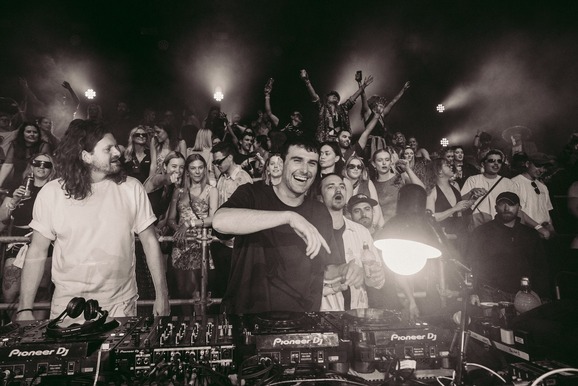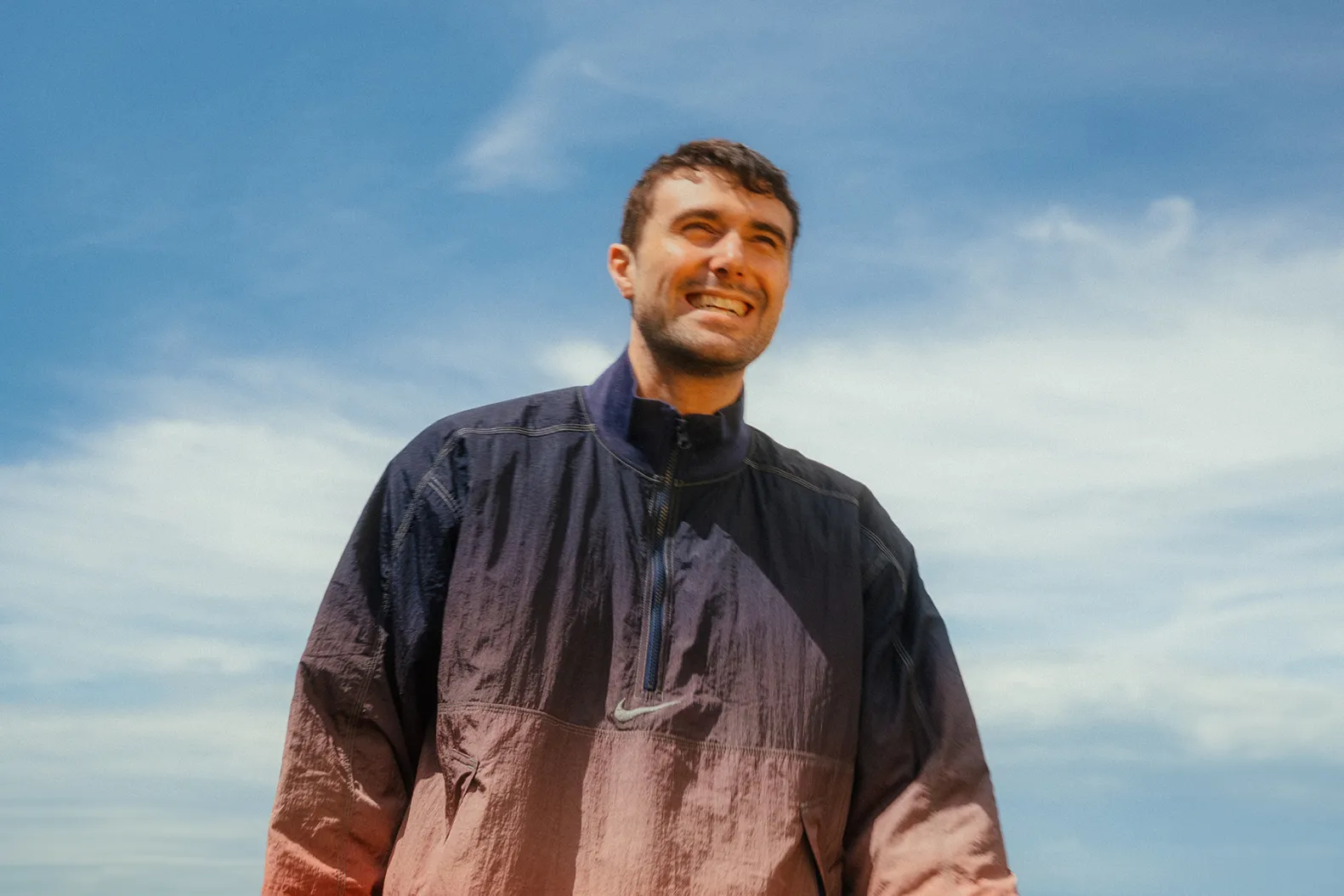Of all the unlikely stories to emerge from the pandemic, few are as peculiar or as poignant as the rise of Fred Again.., the London producer who turned his iPhone notes into a global phenomenon. If you’ve been anywhere near a festival, a club, or even TikTok in the past few years, you’ve felt it, the palpable, almost spiritual connection that thousands of people seem to have with this unassuming guy named Fred Gibson.
Fred’s journey reads like something between a Richard Curtis film and a music industry fairytale. Born Frederick John Philip Gibson in Balham, South London, he attended Marlborough College, the kind of boarding school that usually produces barristers or bankers, not dance music icons. But Fred was different. He learned piano at six, guitar by nine, and by fourteen he was already deep into Logic, the music production software that would later become his playground. His family wasn’t just comfortable, they were practically aristocracy, with lineages tracing back to earls and even Ian Fleming, the creator of James Bond. Yet instead of heading into finance or law, Fred found his calling through a family neighbor: the legendary Brian Eno.
Eno didn’t just give him advice; he became a mentor. Fred joined an a cappella group Eno was running, started helping organize sheet music, and eventually, at just 18, he was co-producing albums with him. That relationship shaped everything. Eno once told him, after hearing old tracks of Fred’s shuffle on iTunes, “Enough now Fred, you have to go back to this stuff, it can’t just be sat on my laptop”. It was the push Fred needed to step out from behind the scenes.
And for years, he was firmly behind the scenes. Fred became a hitmaker for others, the kind of producer you’ve never heard of but whose work you definitely know. He co-wrote George Ezra’s “Shotgun,” which spent weeks at number one, and worked on Ed Sheeran’s No.6 Collaborations Project, which dominated charts globally. He won the BRIT Award for Producer of the Year in 2020, the youngest ever to do so. But despite the success, something was missing. He once admitted, “I was in the midst of working with other people… I needed to make something I wasn’t making”.
That something became the Actual Life series, a trio of albums that are less traditional records and more like audio diaries. Fred started collecting sounds: snippets of conversations, voice memos from friends, clips from Instagram or TikTok. He’d take these raw, everyday moments and build songs around them. The first album, Actual Life (April 14 – December 17 2020), was born during the pandemic, and it captured a feeling of loneliness and longing that resonated deeply. Tracks like “Marea (We’ve Lost Dancing)” sampled the DJ The Blessed Madonna reflecting on the loss of nightlife, and it became an anthem for a generation stuck indoors.
What makes Fred’s music so compelling isn’t just the production, it’s the humanity. He’s spoken about meeting a construction worker in Atlanta named Carlos, whose phrase “we gon’ make it through” became a recurring motif in his music. Fans have even tattooed those words on their bodies. For Fred, it’s about “taking seemingly mundane life moments and shining a light on all the beauty in them”.
But let’s be real: not everyone is a fan. Fred’s background has made him a target for critics who see him as a privileged interloper, lifting sounds from underground cultures and repackaging them for mass consumption. Some call his music “algorithmic,” designed for viral moments and festival peaks. Even his record label, Atlantic, admitted they engineered his Boiler Room set for “virality and ignition”. And that Boiler Room set, the one in July 2022; really did change everything. It’s been viewed tens of millions of times, and it turned Fred from a cult favorite into a headline act.

Since then, it’s been a whirlwind. He’s played Coachella, Glastonbury, and sold out Madison Square Garden in minutes. He’s won Grammys, collaborated with Skrillex and Four Tet, and released albums that feel both deeply personal and universally relatable. Through it all, he’s kept that same DIY ethos, often making music on buses or tubes, using just his laptop and iPhone 14. As he once told The Guardian, “I long for places with a conveyor belt of humanity… you can’t help but be excited by hundreds of excited humans”.
So why does Fred Again.. matter? Maybe it’s because, in a world that often feels disconnected and digital, his music reminds us of the beauty in real life. It’s messy, emotional, and sometimes awkward, but it’s always human. And whether you love him or hate him, you can’t ignore the fact that he’s made people feel something again. In the end, that’s what great art is supposed to do.
Sources:


Leave a Reply